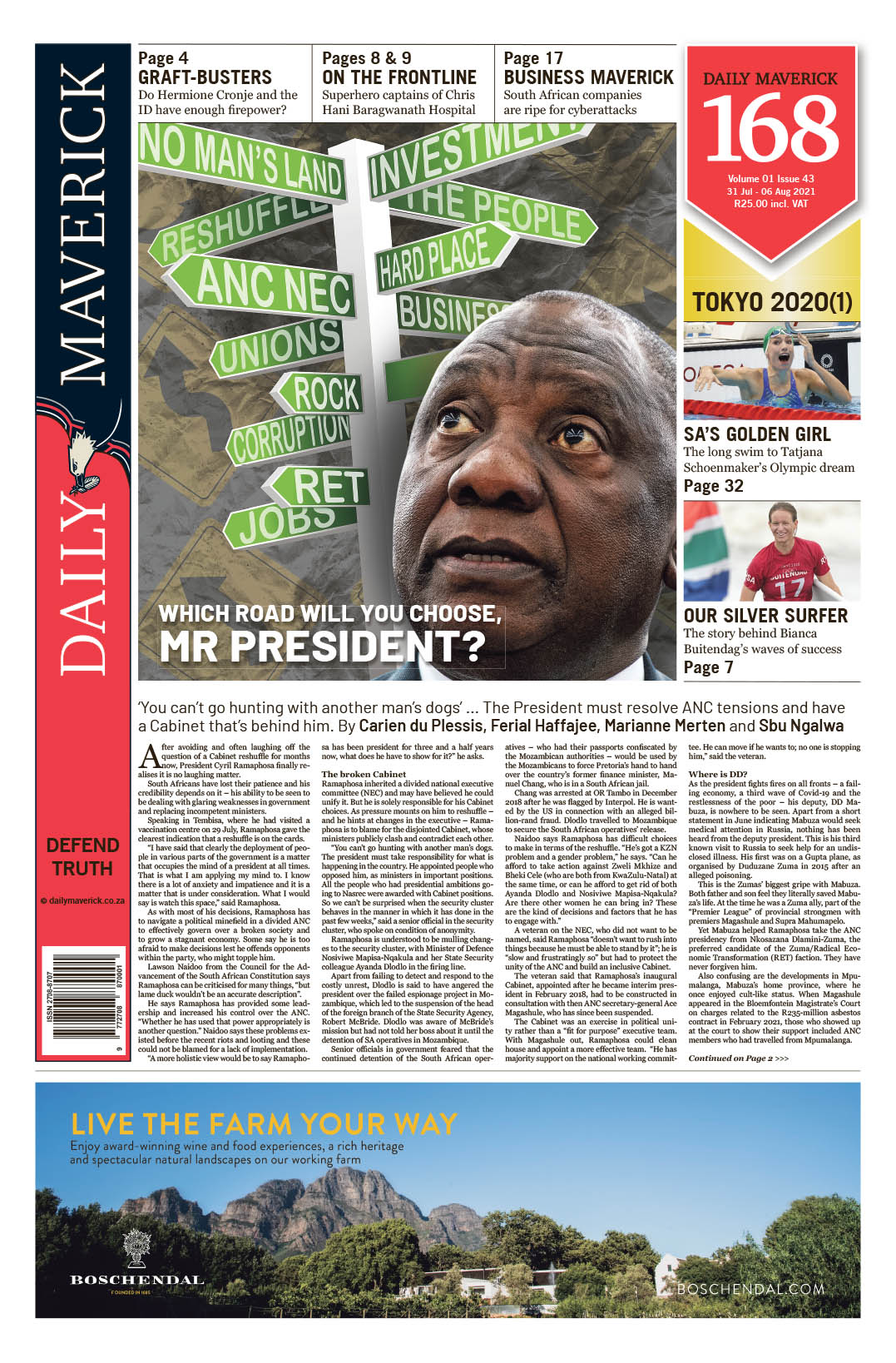First published in the Daily Maverick 168 weekly newspaper.
Naspers, whose 29% shareholding in Tencent accounts for about 82% of its underlying net asset value, has fallen in sympathy with Tencent, declining by 28.3% from its February high. The fact that Naspers’s share price is 28% lower, while Tencent’s is 36.7% lower than it was in February, has more to do with rand depreciation than anything else, explains Anchor Capital’s Mike Gresty.
While it is easy with hindsight to say “I told you so”, the risks of investing in Naspers – or more specifically China – have been evident for some time, but investors tend to ignore risks when the share price is headed north, along with every other tech company in the world.
Let’s face it, China is not a democracy. Far from it. The Chinese Communist Party (CCP) has embraced market reforms and opened its economy because it suits it to do so, not because it wants to emulate Western norms and customs. We witnessed the government’s authoritarianism in 2020 as it grappled with the Covid-19 outbreak. We saw it in 2019 in Hong Kong, when after six months of protests the Chinese government imposed a draconian “national security law” – its most aggressive assault on Hong Kong people’s freedoms since the transfer of sovereignty in 1997. In Xinjiang, Turkic Muslims continue to be arbitrarily detained on the basis of their identity. In Inner Mongolia, education authorities replaced Mongolian with Mandarin Chinese in a number of classes in the region’s schools, according to Human Rights Watch. Chinese authorities’ silencing of human rights defenders, journalists and activists, and restrictions on the internet, make it difficult to obtain accurate information about Chinese government policies and actions. So, if you don’t believe that Tencent has been pressured to pass on chat information from its WeChat platform to the CCP it’s because you choose not to believe it. When it comes to quantifying environmental, social and governance risks, this is a social risk that investors need to price in. Among others.
The government’s heavy-handed approach to regulation is another concern, but to my mind is more readily understood. It began in November last year when Ant Group’s initial public offering (IPO) was pulled. This triggered scrutiny of the fintech structures and practices being used by China’s tech companies, Gresty explains.
This was followed by a clampdown on anticompetitive practices in the industry, which appeared to target the e-commerce players, in particular. For instance, Alibaba was fined for antimonopoly violations last year. In June the Cyberspace Administration of China forced the removal of ride-sharing company DiDi Global’s app from online stores just days after its US IPO, owing to data security concerns; and in recent weeks, the regulatory overhaul of the private online education sector sent markets into a tailspin.
Was all of this unexpected, given the regulatory focus on tech companies in the US and EU? Surely there is a global need to rebalance power between state, tech players and consumers? And does this call for more regulatory intervention? As Chinese economist Lillian Li writes in her excellent newsletter Chinese Characteristics, tech platforms pose significant challenges to nation states’ legitimacy. They are becoming de facto institutions, not just providing crucial utilities that are central to the lives of citizens but also setting the rules of the game in which society operates.
Consider that Facebook sets the content moderation policy for one-third of the world. Facebook has only just acted after researchers found that 12 people are responsible for the bulk of the misleading claims and outright lies about Covid-19 vaccines that proliferate on Facebook, Instagram and Twitter. These platforms are powerful private entities that are part monopoly and part public goods, but consumer welfare is not a core part of their agenda.
In China, where the government tends to let growth and innovation precede regulation, it does act when it believes societal and consumer interests are being harmed, as it did during the mobile telecoms price wars of the 2000s. One could argue that there were more diplomatic, better ways of doing things, but appeasing markets and investors is not a primary concern there.
So what does this all mean for investors in Tencent, and by implication Naspers? And does any of this have any bearing on the exchange offer where Naspers shareholders have the option to tender 45% of their shareholding in return for Prosus shares? Technically, events in China have no bearing on the offer. However, what these events should do is encourage investors – particularly those who are overexposed to Naspers – to price Chinese risk more realistically.
The regulatory clampdown is not over and the moats that the government has allowed companies like Alibaba and Tencent to build around themselves may have been breached, possibly permanently. That said, China is a massive market; its companies are resourceful and innovative, and I have no doubt that these companies will adapt. DM168
This story first appeared in our weekly Daily Maverick 168 newspaper which is available for R25 at Pick n Pay, Exclusive Books and airport bookstores. For your nearest stockist, please click here.

















 Become an Insider
Become an Insider
Comments - Please login in order to comment.